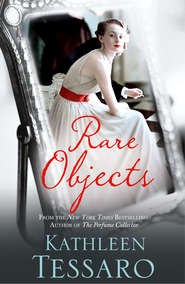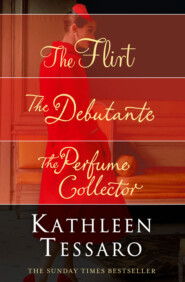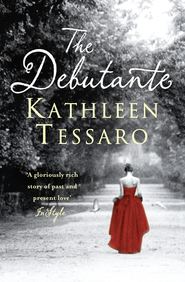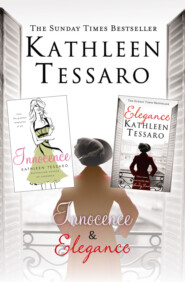По всем вопросам обращайтесь на: info@litportal.ru
(©) 2003-2024.
✖
Innocence
Автор
Год написания книги
2018
Настройки чтения
Размер шрифта
Высота строк
Поля
‘Well, it’s like Park Lane. It’s not on the Monopoly board but it could be.’
‘Humm…’
There’s a weighty silence.
‘Have you girls been smoking in there?’
‘No, Mrs Van Patterson! Of course not! Why? Can you smell smoke?’
‘Yes, I can smell smoke!’
Imo lowers her voice. ‘I think it’s the guys upstairs. I mean, it’s none of my business. But I’m pretty sure I’ve caught them lighting up in the hallway a few times.’
‘Ahhaa. I see. Right. You are a good girl, Imogene Stein. A nice, well-mannered girl. Much better than that roommate of yours. But you must not use so much hot water, OK? Right?’
The door shuts and we can hear Mrs Van Patterson stomping upstairs.
Imo comes back in and sits down. ‘Well, another near miss for the House of Chekhov’ She raises her teacup.
Robbie and I look at each other, then raise our mugs too. ‘I’m a seagull!’ we chorus.
Imogene smiles. She’s young and old, all rolled up at once.
‘Yeah, that’s me. I’m a seagull. So’—she taps another cigarette on the side of the box and lights it, propping her legs on the coffee table. ‘Anyone fancy a nice, long bath?’
Standing on the front doorstep in the wind and rain, I fumble in my jacket pocket for my keys. And then I turn and check one last time.
No, she’s definitely not there. Not hovering behind the laburnum or waiting on the other side of the gate.
Not that I really believe in ghosts.
But seeing Robbie is different.
She wasn’t filmy or white or in any way vaporous or ‘ghostly’. In fact, she looked normal, solid, wearing a pair of jeans and one of those ugly orange sweaters she’d knitted when she thought her true calling was as a knitwear designer. (She never stopped searching for her calling; every year there was a new one. And that year we all got jumpers. I still have a couple—one in fuchsia and another in a kind of toxic-waste green. They manage to be both too tight and too loose all at once; I think the neck hole is really an armhole and the armholes neck holes. She called it her ‘signature piece’.)
By the time class ended she was gone. I looked for her, walking to Covent Garden tube station; I half expected to see her trailing behind me, lingering in the shadows of Drury Lane or even standing on the train platform, reading a copy of Vanity Fair. She used to like Covent Garden, was forever picking up Australians in one of the bars in the market.
But she wasn’t there.
And she isn’t here now.
Of course, I must’ve imagined it. It’s amazing what a little insomnia and a few missed meals will conjure up in a girl. I should be relieved. But instead, strangely, I’m disappointed. The older you get, the more friends you lose to marriage, children, work; to adulthood. Friendship itself becomes an apparition; a fleeting spectre, too quick to evaporate in the glaring light of day.
I turn my house key in the lock of the enormous scarlet-painted door.
Number seventeen was once a formidable, cream-coloured, stucco-fronted Georgian property, very similar to all the other formidable, cream-coloured, stucco-fronted Georgian properties of Acacia Avenue, north London. Now, it’s seen better days. It’s the only house on the street whose garden gate squeals like an angry piglet each time it opens, or whose vanilla exterior is peeling away like shavings of white chocolate on a posh wedding cake. And, in a neighborhood where neat little box hedges and topiary bay trees are de rigueur, the garden has definite romantic, wild, overgrown tendencies; much more Brontë than Austen. In summer, the fig tree drops its heavy fruit to form a thick, gooey compote on the pavement below and each autumn the towering chestnut launches conkers at passers-by with eerie accuracy. A defiant, shabby grandeur has replaced its once impeccable façade. But in the five years I’ve lived here it’s only grown more intriguing.
It’s not your average house share. But then again Bunny Gold, its owner, is not your typical landlord either.
When Bunny’s husband, Harry, died unexpectedly ten years ago, it came to light that he’d been, in addition to a loving husband, father, a respected pillar of the Jewish community and owner of an extremely successful accountancy firm, also a chronic gambler.
He’d already cashed in his pension, life insurance and a great deal of their personal savings to meet his debts. Bunny, who’d spent her entire life in a cosy bubble of shopping, socializing and raising their only child, Edwina, was devastated. An affair would’ve been one thing. But leaving her in financial ruin was much worse. Above all, she was unprepared to part with her beloved home.
So she began to rent out rooms, although she’d be shocked to hear it described as a ‘house share’. To her, our living arrangements are the result of an intimate form of artistic sponsorship; she’s a patron rather than a landlord and will only let rooms to performers or artists whose work she admires. And, at seventy-two, her enthusiasm for almost any form of music, painting, dance, or drama, along with her remarkable appetite for the avant-garde, is nothing less than inspiring.
So, there’s me, the actress/teacher, Allyson, an Australian opera singer/teacher and our latest arrival, Piotr, a concert pianist/teacher from Poland.
And, of course, the love of my life, Alex. We share a couple of rooms and a private bathroom at the very top of the house, overlooking the garden at the back.
We are the privileged few.
Postcards from all over the world regularly filter in from previous tenants, along with invitations for Bunny to visit them in Rome, Paris, New York, Berlin…I’ve known a few of them myself over the years. As Bunny says, ‘Evie, if this goes on much longer, one of us is going to have to propose!’
And she’s right. I should get myself together and move on. But it’s never quite as easy as it sounds. Whole years have evaporated, just waiting for the kettle to boil. Maybe one day I’ll be the one sending postcards, even if I only get as far as south London.
But right now, I’m just grateful to be home.
Dumping my bag and coat down on the reindeer antler coat-stand in the front hallway (the work of a Norwegian furniture designer who lived here two years ago and now designs plastic chairs for Habitat), I make my way down to the kitchen for a cup of tea and a ferret around the fridge, only to find Allyson and Piotr arguing about lieder.
They barely notice me as I fill up the kettle and switch it on. Both are fairly formidable; it’s like a scene from Twilight of the Gods. Piotr is incredibly tall and slender; he moves with a confident, swaggering ease, unusual for a man of his height. His dark hair’s cut quite short at the back but still manages to tumble into his eyes, which are a particularly warm shade of brown; the concentrated golden walnut of a tiger’s eyes and equally intense. However, his hands are his most remarkable feature. They’re Rachmaninov hands, vast and powerful; each one easily the size of a grown man’s face. He’s only been here a week and I’ve never heard him say more than three words together. So it’s quite a surprise to hear him speak in full sentences.
Allyson, on the other hand, is going through her Maria Callas stage. If Piotr’s hands are his most distinguishing feature, Allyson’s cheekbones are hers. They’re like two evenly spaced shelves upon which her heavily made-up, green-grey eyes are balanced. Her long auburn hair is scraped back into a perfect chignon and she’s solidly, dramatically, emphatically curvy or, as she puts it, ‘ample yet agile’ (the world of opera being much more image conscious than it used to be). But despite her impeccably groomed exterior, she possesses the mouth of a merchant sailor. After struggling in England for three years now, she’s just beginning to cover roles at Covent Garden and sing a few major parts for Opera North and the Welsh National. That, along with a steady stream of young students, keeps her permanently occupied. But her real chance is coming next month. She’s due to perform a recital of lieder at St John’s Smith Square and has had her heart set on being able to rehearse with Piotr. But now it looks like she’ll have to rehearse alone.
(This is one of the few advantages to shared housing: not all the dramas are your own.)
I move silently to the draining board and retrieve a mug.
‘But why?’ Allyson gestures wildly to the heavens; a move she used to great effect in a regional production of Tosca last March. ‘Give me one reason why not? For fuck’s sake! I’ll pay you whatever you like!’
Piotr leans against the kitchen counter, his hands in his jeans pockets, amused. ‘I’ve already explained to you. German is not a language that anyone should be singing! Ever! Italian, yes. French, OK. Russian, perfect! But German? Sounds like…like a noise you make when you, you know, spit!’ And he demonstrates the noise.
I put the mug down. Maybe I’ll give the tea a miss.
A slice of toast pops up in the toaster.
‘But you play German music! You play Beethoven, Mozart, Liszt…’ Allyson continues.
Piotr tosses the toast onto a plate, opening drawer after drawer in search of a knife.
I hand him one.
‘Thank you. Liszt is not German.’
He looks around.
‘Don’t be so pedantic!’ Allyson accuses, pushing the butter dish across to him.
He sighs, spreading the butter thick. ‘When I play Beethoven or Mozart, I don’t have to listen to German. I listen to music. When I have to listen to German, there’s no longer any music.’ And he shrugs his shoulders; a rolling, slow-motion version that’s somehow distinctly Eastern European. ‘I’m sorry’











